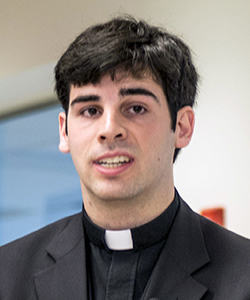A few weeks ago, I went to church on Sunday and heard a quite shocking announcement. That morning, while I was traveling to Mass, on the other side of Tanzania, a priest was shot and killed while going to celebrate Mass. And while it was no secret that there are parts of the world in which people are persecuted for their religion (even in the United States with the shooting at the Sikh temple in Wisconsin last year), I hadn’t expected to confront this reality in Tanzania, a country that has for all intents and purposes has been peaceful since its independence and has grown on a strong tourism industry.
Unfortunately, this violence is the harsh truth that this country encounters today in Zanzibar. A dangerous combination of political and religious tensions has erupted into a serious of religious violence on the island, including the killing of a Muslim cleric earlier in February. This recent surge of violent attacks goes back as far as last November when attackers splashed acid on Muslim cleric Fadhil Soraga. While the root cause of this violence is uncertain, it is speculated that the people behind the violence are using the violence to further the secession of Zanzibar from Tanzania, or the violence is simply a result of poor education and poor leadership.
To make the matter worse, this is a continuing trend all around Africa and the world, with the most notable examples being the Boko Haram attacks in Nigeria. Globally the number of people killed because of their religious beliefs consistently rose over the years to the point where well over 1,000 people are killed for their religion annually. Berkley Center scholar Daniel Philpott explored this trend in an article in America Magazine, noting that the majority of these “modern martyrs” are Christian, though there are still many people of other faiths who are martyred.
Despite this growing tragedy, there has been very little outcry by members of the Catholic Church or Christians in general. Philpott stipulates (and I agree) that there are certain characteristics in the Christian view of martyrdom that mitigates such temptations to seek retribution. One particularly striking example of this acceptance of martyrdom is in Nigeria, where faith-motivated violence is of the highest in the world, in which approximately 90 percent of the population (which is equally Muslim and Christian) claim that they are willing to die for their faith. However, alongside such devotion can exist great understanding and respect for people of different religions. Philpott cites in his article an example of the killing of 25 Christians who were slain on New Year’s Day in Egypt. In wake of the tragedy, thousands of Muslims held candlelight vigils and formed human chains around Coptic churches to protect them during their worship.
With such displays of solidarity in the wake of violence, it is clear that such religious violence need not occur in the first place. At Georgetown, our religious devotion, particularly our Jesuit and Catholic identity, is what motivates significant interfaith dialogue, understanding, and cooperation to achieve a greater good. Similarly there are many other countries in Africa with a high religious diversity but have avoided the violence that we too often hear about in the news. Many countries that have significant religious diversity, such as Benin, Chad, and Mozambique, have experienced very little religious tension, and they actually have successfully engaged in significant interfaith dialogue and used faith organizations to assist in the countries’ developmental needs. While countries on many levels of economic and political development experience religious violence, many diverse countries have effectively eliminated such tensions.
With such a disparity between countries that resort to violence and those that remain peaceful, the question comes to mind of what is it that causes one country to go violent and another remain peaceful. Among countries with multiple, significant religious populations, you find countries that span the whole of economic, political, and overall developmental status. While a middle-developed country like Tanzania can experience such violence, a greatly impoverished country like Chad can experience little to no violence at all. Although a clear answer may not be easily found, it is clear that there are concrete steps that can be taken to avoid, or at least mitigate, this violence.
One such step is the basic education of the people, including the inculcation of a value on interfaith dialogue in society. Furthermore, steps to reduce poverty, inequality, and political strife can help reduce violence on a grand scale, as well as religiously motivated violence. While this is a tall task, it is by no means impossible. Just this past week in Kenya, the highly contested elections have been carried out and decided with absolutely no post-election violence. Even though the previous Kenyan violence was not religiously motivated, the peaceful elections reflect a major success in moving towards a more peaceful Africa and world.

